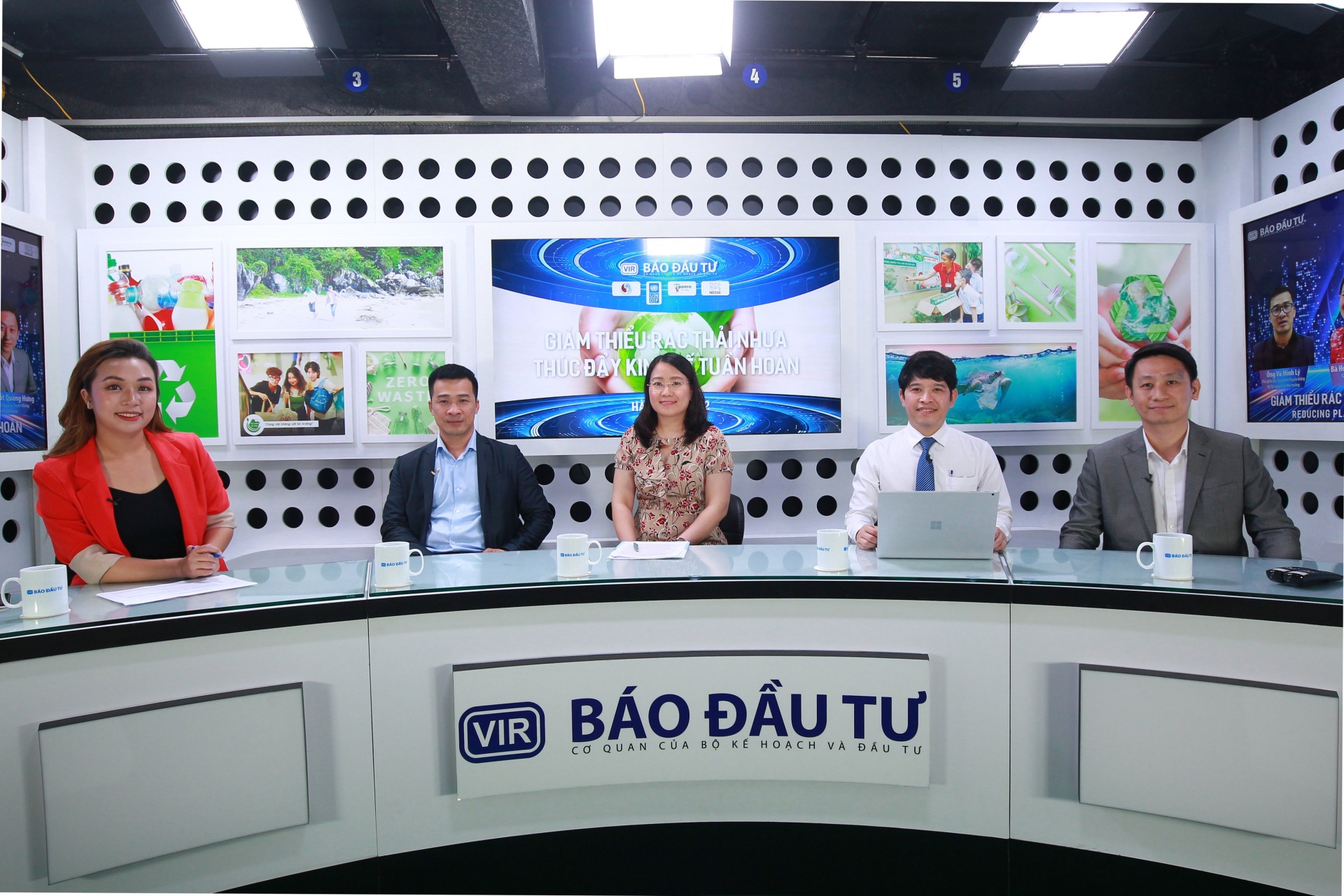Plastic waste reduction via a circular economy
 |
| Reducing Plastic Waste via the Circular Economy |
At the first talk show on Reducing Plastics Waste via the Circular Economy that took place on June 6, experts provided specific insights into Vietnam’s strong commitments and determination in implementing its sustainable development goals, including the commitment to reduce plastic waste consumption.
Vu Minh Ly, deputy director of the Centre for Communication, Ministry of Natural Resources and Environment (MoNRE)
 |
We have already achieved many advancements in the recycling of plastic waste, particularly after June 2019, when a statewide effort on this issue was formally initiated. There are several noticeable accomplishments after three years of implementation, and overall, businesses have made great efforts in protecting the environment and reducing plastic waste.
Vietnam has pledged to several organisations and countries to decrease plastic waste and safeguard the environment. Many environmental protection improvements are taking place in agencies, enterprises, and people’s consciousness – particularly among young people.
MONROE is now consulting with the government on the terms of the revised Environmental Protection Regulation 2020, including several laws and incentives for enterprises engaged in environmental protection, especially recycling.
Local governments have also designed and released comprehensive action plans to meet the government’s goal of eliminating single-use plastic in Vietnam by 2025. MONRE and other enterprises are stepping up their efforts to attain this goal.
The state must continue to explore and create legislation to assist businesses in transitioning to plastic replacements. In addition, it is necessary to change the subject of tax from producers to consumers.
Pioneering enterprises in plastic waste recycling will have to bear the initial expenditures and losses but will deliver safety and sustainability in the long run for society and the earth.
Each individual can contribute to plastic waste reduction with small actions such as carrying their own bags to the market, avoiding plastic straw usage, and using non-plastic cups.
Hoang Thi Dieu Linh, Waste and Circular Economy Officier, UNDP Vietnam
 |
Plastic items are cheap and affordable, which is a challenge for businesses. According to a UNDP study in 2020, more than 90 per cent of respondents are aware and supportive of initiatives to reduce plastic waste.
However, legal updates for plastic products are insufficient for long-term growth. To replace single-use plastic items, a synchronised solution from mechanism to policy is required. In order to solve this problem, multiple stakeholders – including the government, corporations, schools, and media organisations – must work together.
The UNDP and MONRE have created the Vietnam Circular Economy Network, which is a public and stakeholder awareness-raising venture that helps combine financial and technological efforts to produce creative solutions. It allows businesses to share successful models to assist with the transition to a greener and more sustainable circular economy.
The UNDP is implementing a project in Binh Dinh province to construct a material recovery plant. The purpose of the project is to improve the quantity of plastic waste collected in the system and then construct a value chain of plastic items to sell at a better price to the market. Scrap collectors can engage in this chain to enhance their livelihoods and promote awareness.
Assoc. Prof. Dr. Nguyen Dinh Tho, director general of the Institute of Strategy and Policy on Natural Resources and Environment (ISPONRE)
 |
In order to implement sustainable production and plastic waste reduction models, it is vital to upgrade and apply advanced production techniques and green technologies that consume fewer resources and reduce waste generation. This is closely related to the financial capacity of any business.
The government should also introduce specific and practical mechanisms and policies so that businesses have the opportunity to access capital to invest in sustainable production and plastic waste reduction models.
In addition, the state must organise programmes and campaigns to raise awareness, especially among the business community.
In the past, ISPONRE – in collaboration with the Hanoi Department of Industry and Trade – called on businesses to sign a commitment to join an alliance of retailers to reduce plastic bag use.
Moreover, the institute is also collaborating with organisations and experts to research and evaluate typical models in the field of plastics such as the reuse-refill model, completion of the criteria for the circular economy, and criteria for waste-to-energy incineration plants.
Khuat Quang Hung, head of Corporate Affairs, Nestlé Vietnam
 |
Consumers have become aware of the need to reduce and prevent plastic waste, but have not taken much specific action. Most still choose convenience and have not done enough to reduce plastic waste.
The replacement of plastic straws with paper straws is an example. This change could contribute to reducing more than 700 tonnes of single-use plastic per year. Yet ironically, not many businesses do this due to the increased cost.
Moving from plastic to paper straws is also difficult due to concerns that the use of paper straws will change the consumer experience. Therefore, Vietnam needs solutions to develop the market for recycled products and policies to encourage businesses to invest in programmes for plastic waste reduction and solutions for manufacturing products with eco-friendly packaging.
What the stars mean:
★ Poor ★ ★ Promising ★★★ Good ★★★★ Very good ★★★★★ Exceptional
 Tag:
Tag:
Related Contents
Latest News
More News
- Bac Ai Pumped Storage Hydropower Plant to enter peak construction phase (January 27, 2026 | 08:00)
- ASEAN could scale up sustainable aviation fuel by 2050 (January 24, 2026 | 10:19)
- 64,000 hectares of sea allocated for offshore wind surveys (January 22, 2026 | 20:23)
- EVN secures financing for Quang Trach II LNG power plant (January 17, 2026 | 15:55)
- PC1 teams up with DENZAI on regional wind projects (January 16, 2026 | 21:18)
- Innovation and ESG practices drive green transition in the digital era (January 16, 2026 | 16:51)
- Bac Ai hydropower works stay on track despite holiday period (January 16, 2026 | 16:19)
- Fugro extends MoU with PTSC G&S to support offshore wind growth (January 14, 2026 | 15:59)
- Pacifico Energy starts commercial operations at Sunpro Wind Farm in Mekong Delta (January 12, 2026 | 14:01)
- Honda launches electric two-wheeler, expands charging infrastructure (January 12, 2026 | 14:00)






















 Mobile Version
Mobile Version